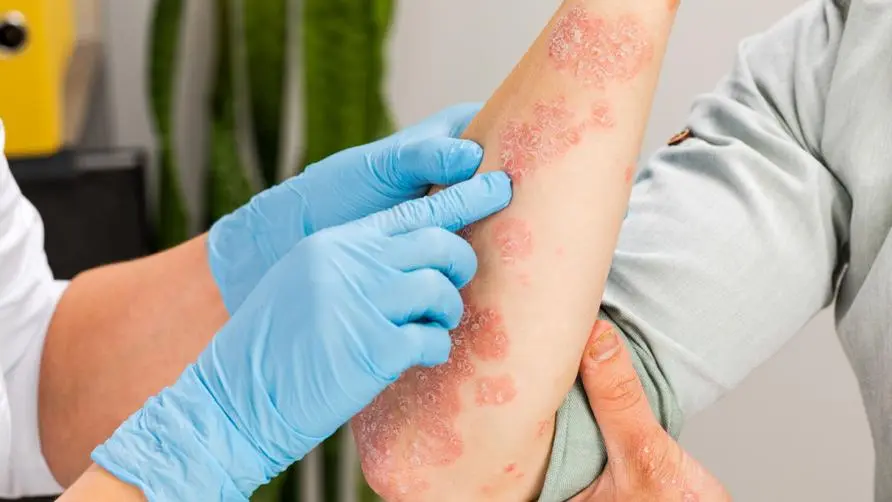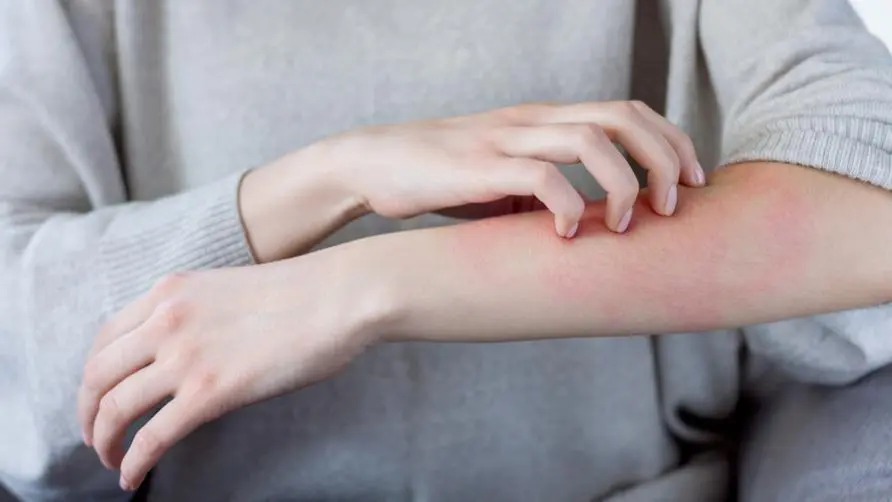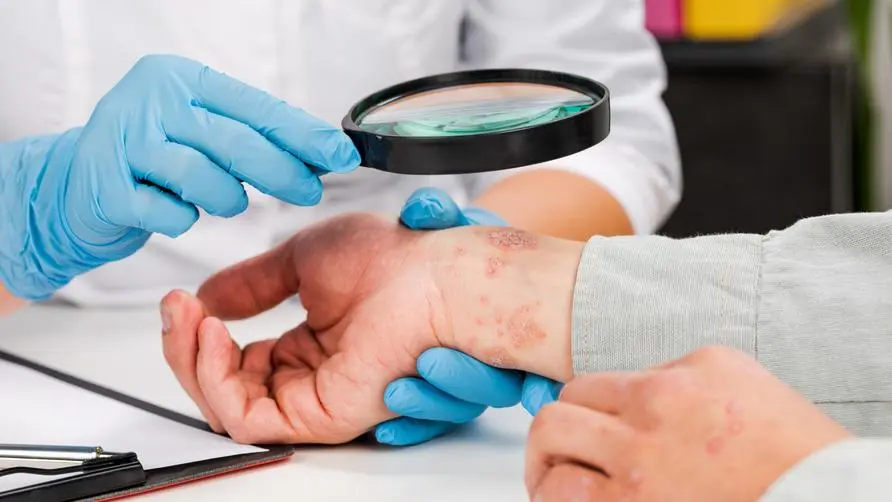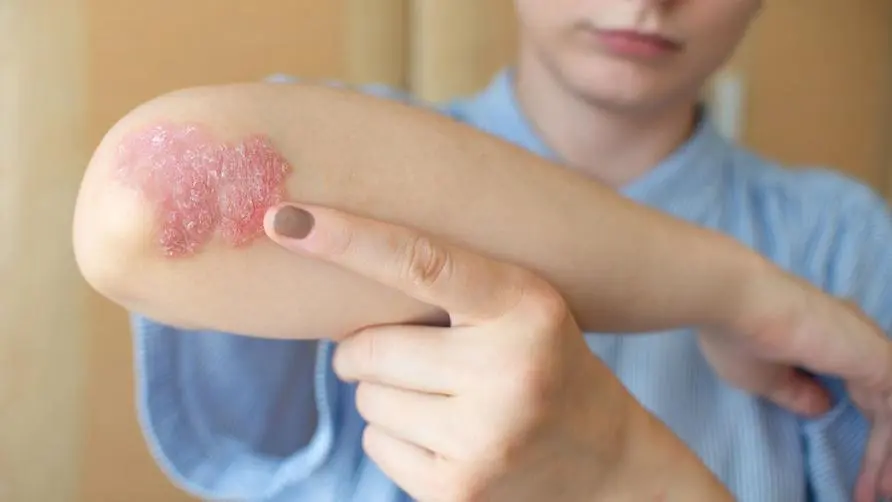Even the wind hurts the wound! She nearly died with "pustules all over her body". The doctor shook his head: It could relapse at any time.
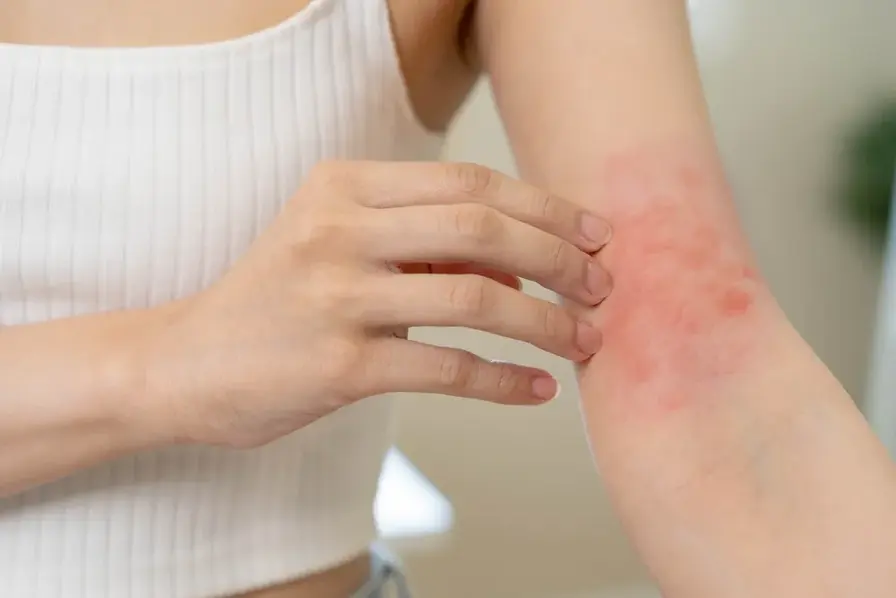
This skin disease almost killed her! It takes 3 weeks to take effect after taking the medicine?
Even seemingly minor “skin problems” are at risk of becoming serious? A nearly 40-year-old female patient was diagnosed with generalized pustular psoriasis (GPP) when she was in school. During the acute attack, not only was the whole body covered with tiny pustules, she was also almost comatose due to severe high fever, leaving her hospitalized and bedridden for a long time. More than a month later, after being discharged from the hospital, he still had attacks from time to time and needed to be hospitalized repeatedly. It took 9 months for his condition to stabilize.
Unexpectedly, a few years ago, during her pregnancy, the patient suffered from generalized pustular psoriasis. A massive outbreak of pustular lesions left her completely covered with wounds. She felt a strong stinging sensation even when the wind blew. This attack was even more serious. It caused sepsis, which was almost life-threatening. It usually takes 2-3 weeks for traditional medicines to be effective. Patients endure physical discomfort and go to work, but they also have to face many problems such as poor work efficiency and strange looks from colleagues.
Nearly 50% of patients are hospitalized for 10 days! Generalized pustular psoriasis may be life-threatening
Systemic pustular psoriasis is a rare but potentially fatal skin disease. The most characteristic feature of the disease is the appearance of a large number of pustules on the skin, often accompanied by systemic symptoms such as fever. According to a survey of patients with generalized pustular psoriasis, more than 70% of patients had an average of more than three severe attacks within 2 years.
The skin lesions of generalized pustular psoriasis can range up to 10 palms in size; more than 40% of patients are hospitalized for more than 10 days during an attack; not only are they unable to work normally, but they also have to rely on others to take care of them for daily living. Director Shi Chongliang of the Taiwan Health Insurance Administration said that improving people’s accessibility to advanced treatments is one of the long-term goals of the Taiwan Health Insurance Administration.
Director Shi Chongliang pointed out that the current special “biological agents” for generalized pustular psoriasis are expected to help patients return to normal life more quickly, and even return to work. With the high expectations of patients, the Taiwan Health Insurance Administration has officially approved the inclusion of special biological agents for systemic pustular psoriasis into health insurance benefits starting from July 1 this year. It is expected to provide more precise treatment weapons to help patients with acute attacks quickly. Eliminate pustules. It is expected to benefit hundreds of patients in Taiwan with moderate to severe acute attacks of generalized pustular psoriasis.
The dawn of treatment for generalized pustular psoriasis? Half of patients in Taiwan develop “IL-36 mutation”
Chairman Zhao Xiaoqiu of the Taiwan Dermatology Association emphasized that the severity of generalized pustular psoriasis is completely different from ordinary plaque psoriasis, and the causes of the disease are multiple and unpredictable, such as genetic factors, pregnancy, stress, environment, The influence of drugs or infection may lead to disease onset. If not treated properly, it may increase the risk of fatal complications from sepsis or multiple organ failure such as heart, lung, and kidney.
However, there were not many types of drugs available in the past, and they were not even specific drugs for the treatment of systemic pustular psoriasis. Their effectiveness in treating acute attacks was also limited. Therefore, dermatologists look forward to having more weapons that can be used in the treatment of generalized pustular psoriasis. At present, the Taiwan Dermatology Association has published the “Consensus on the Treatment of Generalized Pustular Psoriasis”, which provides guidance on the treatment goals and medication strategies of the disease, hoping to help Taiwanese GPP patients obtain better treatment and care.
Cai Chengfang, chairman of the Taiwan Psoriasis and Skin Immunology Society, explained that many studies have confirmed that systemic pustular psoriasis is related to abnormalities in the interleukin-36 (IL-36)-related inflammatory pathways in the immune system, including IL-36RN gene mutations and excessive activation of IL-36 hormone may induce disease attacks. More than half of Taiwanese patients have IL-36 mutations. This discovery has also become a new milestone in the treatment of systemic pustular psoriasis.
Through advanced genetic testing technology, IL-36RN gene mutations can be quickly identified in one test, which is very helpful for diagnosing systemic pustular psoriasis and formulating personalized treatment. Therefore, in the future, how to improve public awareness of systemic pustular psoriasis, encourage symptomatic patients to seek early medical treatment, and apply genetic testing in disease diagnosis and treatment planning is a key issue.
Extended reading: Skin diseases that cannot be cured are caused by “eating the wrong food”? Nutritionist reveals “10 types of diet” that make eczema symptoms worse
The powerful treatment tool “biological agents” are showing their power! GPPGA score “dropped from 4 points to 0 points”
Dr. Huang Yuhui, director of the Taiwan Dermatology Association and associate professor-level attending physician at the Department of Dermatology, Taipei Linkou Chang Gung Memorial Hospital, pointed out that following the disease treatment consensus published by the Taiwan Dermatology Association, the main treatment goal for generalized pustular psoriasis is “rapid and sustained control. disease, allowing patients to return to normal life with peace of mind”, which means to quickly and continuously clear skin symptoms and relieve pain during acute attacks; even if symptoms are relieved, regular follow-up visits should be continued to reduce recurrence of acute attacks and complications. risk.
Currently, clinical dermatologists use the Generalized Pustular Psoriasis Global Assessment Tool (GPPGA) to judge the patient’s condition based on the severity of the three major symptoms: pustules, erythema, and scaling. The special biological agent for systemic pustular psoriasis included in the National Health Insurance Benefit this year was developed targeting the “IL-36 inflammatory pathway”.
Dr. Huang Yuhui pointed out that clinical trials have confirmed that more than 50% of patients can completely clear pustules in about a week, and the GPPGA pustule score is reduced from 4 points for severe to 0 points for complete elimination, quickly improving skin pustule symptoms; and in Three months after treatment, 60% of patients can still maintain a pustule score of 0, which is expected to break through the dilemma of limited effectiveness of traditional treatments and provide a more effective treatment option for managing acute attacks.
Extended reading: Skin blisters and broken skin are actually “pemphigoid” attacks! Doctor: Be careful when taking 1 diabetes medicine
Systemic pustular psoriasis “321” new proposition hopes to establish correct treatment concepts
Wang Yaxin, secretary-general of the Taiwan Psoriasis Association, believes that generalized pustular psoriasis is one of the most dangerous types of psoriasis. Patients’ families cannot live normal lives due to the disease, which affects not only the patients themselves, but also society as a whole. Decline in the workforce. Therefore, the Taiwan Health Insurance Administration’s rapid approval of the payment of special biological agents for systemic pustular psoriasis is expected to provide patients with more treatment options and help reduce their financial burden.
The “Taiwan Dermatology Association” and the “Taiwan Psoriasis and Skin Immunology Society” jointly promote the “GPP 321 new treatment proposition” and call on the public to follow: if the “3” major symptoms of pustules, erythema, and scaling occur, they should be treated as soon as possible Go to the dermatology department of the medical center for medical treatment, make good use of GPPGA and genetic testing “2” tools to help evaluate treatment plans, grasp the “1” consensus, quickly and continuously eliminate pustular symptoms, embrace a better life, and regain control of life. For the general public, we also hope to establish a correct understanding and vigilance of the disease, and to detect and seek medical treatment as early as possible.
Extended reading: Are poor skin and bulging abdomen caused by constipation? Nutritionist advises office workers: Say goodbye to irregular bowel movements with the “Rule of 1”


